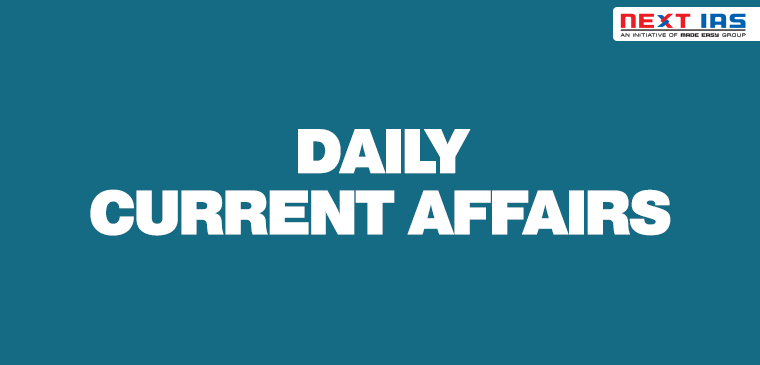
In News
National Payments Corporation of India (NPCI) has refused to ban cryptocurrency transactions and has instead put an onus on banking institutions whether to ban crypto trades or not.
- The NPCI runs Unified Payments Interface (UPI) system (instant real-time payment system) in India.
About
- The NPCI told banks that they must make the decision based on the advice provided by their own legal and compliance departments.
- NCPI’s decision comes at a time when banks are refusing to accept payments for cryptocurrency deals.
- As close to half a dozen banks have given directions to payment gateways to blacklist merchants who actively trade cryptocurrencies
- The National Payments Corporation of India’s decision is based on the ruling passed by the Supreme Court in March 2020.
Cryptocurrency
- It is a digital currency that can be used in place of conventional money.
- In cryptocurrencies, cryptography is used to secure and verify transactions. It is also used to control the supply of cryptocurrencies.
- It is supported by a decentralized peer-to-peer network called the blockchain.
- First cryptocurrency: Bitcoin, launched in 2009 by Satoshi Nakamoto.
Present Status in India
- 2018: RBI banned banks and other regulated entities from supporting crypto transactions.
- 2019: Inter-ministerial committee recommended ban all private cryptocurrencies.
- 2020: Supreme Court struck down the ban as unconstitutional.
- Court’s observation: RBI has not come out with a stand that any of the entities regulated by it namely, nationalised banks/scheduled commercial banks/cooperative banks/NBFCs, have suffered any loss or adverse effect directly or indirectly, on account of virtual currencies (VCs).
- Hence, the RBI circular is “disproportionate” with an otherwise consistent stand taken by the central bank that VCs were not prohibited in the country.
- The court found that the RBI did not consider the availability of alternatives before issuing the circular.
- The court referred to the Centre’s failure to introduce an official digital rupee despite two draft Bills and several committees.
- Court’s observation: RBI has not come out with a stand that any of the entities regulated by it namely, nationalised banks/scheduled commercial banks/cooperative banks/NBFCs, have suffered any loss or adverse effect directly or indirectly, on account of virtual currencies (VCs).
- 2021: Cryptocurrency and Regulation of Official Digital Currency Bill, 2021 introduced.
- Under this plan to ban private digital currencies, favour RBI backed currency.
- A 3-6 month exit period prior to banning the trading, mining and issuing of cryptos.
- Finally, Cryptocurrencies, though unregulated, are not illegal in India.
RBI and Digital Currency
- Exploring DLT (Distributed Ledger Technology) based Central Bank Digital Currency.
- Under DLT, details are recorded in multiple places at the same time.
- Central Bank Digital Currency (CBDC): It will be a legal tender.
- Can be converted/exchanged at par with similarly denominated cash.
- Need for Central Bank Digital Currency (CBDC): Need-Innovations are changing the payments space rapidly.
- This has made central banks around the world examine whether they could leverage technology and issue fiat money in digital form.
Benefits of Cryptocurrency
- Inherent security: Use of pseudonyms and ledger system conceals the identities.
- And, a transaction done by cryptocurrency is irreversible and cannot be reversed.
- Low transaction cost: Very low fees and charges for transactions.
- Lack of interference from the banking system: Outside ambit of banking systems.
- Lower Entry Barriers: No entry barriers, unlike conventional banking systems.
- Universal recognition: Lots of cryptocurrencies and acceptable in many nations.
- The transaction is instantaneous and the transaction can be done across the globe without restrictions.
Concerns/Challenges
- Security risks: Cyberattacks on wallets, exchange mechanism (Cryptojacking).
- Shield to Crime: Used for Illicit Trading, Criminal Activities, & organised crimes.
- Lack of Liquidity and Lower Acceptability: Outside the traditional banking systems.
- Price Volatility: Prone to price fluctuations & waste of computing power.
- Lack Consumer Protection: No Dispute Settlement Mechanisms.
Way forward
- Cryptocurrency is, despite all its risks, perhaps the most exciting asset of the 21st century. A decentralized digital currency that works on the very interesting and likely here-to-stay blockchain technology.
- Take a cue from developed countries, have a safeguard, measures and regulatory.
|
National Payments Corporation of India (NPCI)
|
Source: ET
Previous article
Maratha Quota Law Unconstitutional: SC
Next article
Facts in News